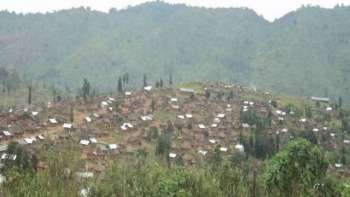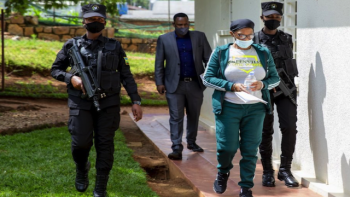"Young folks with bedrolls and backpacks were milling about. Veterans of the movement trained newcomers in the tactics of non-violence; the right way to protect yourself when attacked. A doctor described what tear gas does to the body, while marchers scribbled down instructions for contacting their loved ones. The air was thick with doubt, anticipation and fear. And they comforted themselves with the final verse of the final hymn they sung:
No matter what may be the test, God will take care of you;
Lean, weary one, upon His breast, God will take care of you.”It is with this powerfully poignant description of the mindset of those who mached 50 years ago in Selma, that US President Barack Obama opened his speech to commemorate the 50th Anniversary of the Selma to Montgomery Marches.
President Obama was addressing a crowd that included the icon marcher John Lewis, former US President George Bush, several Civil Rights Movement leaders, both Black and White, a large number of American politicians, and, most importantly, the people whose lives were changed by the Salma Marches, forever.
It was an emotional speech. It was a historical address. It was a powerful message. It was an inspirational poetry. Most of all, it was a message of hope, a methodical diagnosis of what makes United States of America the Greatest Nation in the World. The concept of "WE."
As President Obama put it: "Because Selma shows us that America is not the project of any one person. Because the single-most powerful word in our democracy is the word “We.” “We The People.” “We Shall Overcome.” “Yes We Can.” That word is owned by no one. It belongs to everyone. Oh, what a glorious task we are given, to continually try to improve this great nation of ours."
In the process, President Obama reminded the young people around the World that Selma should inspire them to seek freedom, rid themselves of oppressive regimes, and achieve greater things: "That’s what makes us unique. That’s what cements our reputation as a beacon of opportunity. Young people behind the Iron Curtain would see Selma and eventually tear down that wall. Young people in Soweto would hear Bobby Kennedy talk about ripples of hope and eventually banish the scourge of apartheid. Young people in Burma went to prison rather than submit to military rule. They saw what John Lewis had done. From the streets of Tunis to the Maidan in Ukraine, this generation of young people can draw strength from this place, where the powerless could change the world’s greatest power and push their leaders to expand the boundaries of freedom."
It was more than a speech, more than a commemoration: it was a testament on how common people can overcome, how "plain and humble people –- unsung, the downtrodden, the dreamers not of high station, not born to wealth or privilege, not of one religious tradition but many, coming together to shape their country’s course"
The Selma Marches happened in America and inspired other oppressed people around the World. Selma would continue to inspire young people around the World to firmly believe that " We are the people Langston Hughes wrote of who “build our temples for tomorrow, strong as we know how.” the people Emerson wrote of, “who for truth and honor’s sake stand fast and suffer long;” who are “never tired, so long as we can see far enough.” and "to hold firmly the words of the prophet Isaiah: “Those who hope in the Lord will renew their strength. They will soar on [the] wings like eagles. They will run and not grow weary. They will walk and not be faint.”
"our march is not yet finished, but we’re getting closer."

















